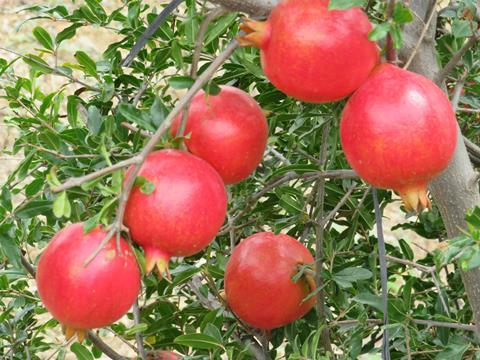Kay Bee Exports airfreights inaugural shipment using irradiation to meet protocol requirements
The first fresh Indian pomegranate exports to Australia have arrived to a strong response, almost five years after market access was granted.

Indian exporter Kay Bee Exports airfreighted the inaugural shipment of pomegranates on Saturday 30 August, which was received by Fresh Produce Group in Melbourne and presented at Fine Food Australia 2024 on 2-5 September.
Chief executive Kaushal Khakhar said the fruit received a strong response.
“Everyone has commented on the excellent eating quality of the fruit, noting that it is soft and sweet. All customers we have shipped to have placed repeat orders,” said Khakhar.
“The fruit was available at specialised stores across Melbourne and Sydney, which were early adopters.”
Indian pomegranates were first granted access to Australia back in 2020; however, the protocol required in-transit cold treatment at temperatures below 2°C, which was not viable. There was a more feasible irradiation option included in the protocol, but this was not finalised until earlier this year, according to Khakhar.
“Timing was ideal, as fruit grown from April to September needs to be airfreighted; the fruit grown during this period is not suitable for seafreight,” he explained.
“We harvest the fruit and then complete a very complex cleaning process, which is part of the protocol. The fruit is then packed, irradiated, and shipped.”
The fruit must be irradiated at ambient temperature, which adds to the complexity of the process for seafreight shipments. Khakhar said the details of this process are still being finalised, but Kay Bee Exports hopes to have it ready by November, when the winter season begins.
“We definitely want to try seafreight because that’s the only sustainable way to operate. Airfreighted fruit is just for market introduction. The long-term plan is to use seafreight,” said Khakhar.
“The majority of the fruit is grown in Maharashtra, particularly near Solapur and Sangli, where the peak of the winter season is November, December, and January. Only winter fruit has the right shelf life to withstand seafreight due to its thicker rind.
“The colour of the fruit will also improve as we progress. When winter arrives, we will have a very deep red colour.”
Pomegranates from Kay Bee Exports will have a couple of advantages in the market, according to Khakhar. He said the company grows its own pomegranates in addition to working with partner farmers, which helps manage supply. Indian fruit also offers greater eating value.
“Pomegranates from India are typically smaller in size, but the eating portion is higher than other varieties. For example, in American fruit, the seeds account for about 40 to 45 per cent of the fruit’s weight, while for us, it is about 55 per cent.”



